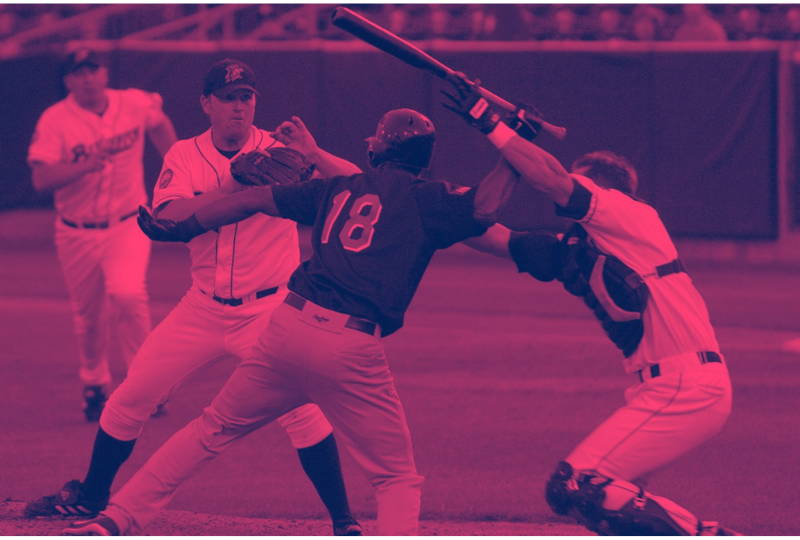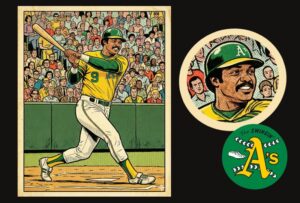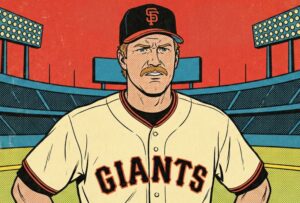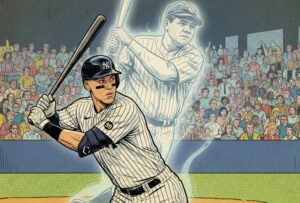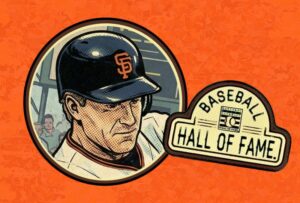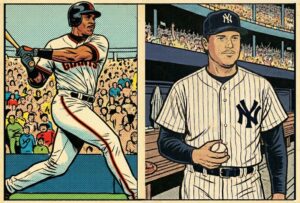There’s no place for violence in baseball, right? If your name is José Offerman you’d probably disagree.
In a 15-year career in the major leagues, Offerman was a two-time All-Star, but most troubling, he was a multiple offender when it came to blowing his top. Furthermore, following two bizarre and violent incidents after his big league career, Offerman finds himself banned from baseball in two countries.
Offerman was only 17 when he was signed to a contract by a Los Angeles Dodgers scout working the talent-laden city of San Pedro de Macoris in the Dominican Republic. A lean-bodied, quick athlete, Offerman had the looks of a good ballplayer as a teenager. The Dodgers were one of the first MLB teams to devote a lot of energy and resources to finding ballplayers in Latin America. Their scout was correct about Offerman – in 1990 he was named Minor League Player of the Year by The Sporting News and later that season José was making his big league debut for LA, playing for legendary manager Tommy Lasorda.
Offerman played shortstop initially, but he didn’t play the position well. He made an alarming 42 errors in his first full season at short for the Dodgers. But his bat and his speed on the bases was his calling card. Offerman hit well over .300 in nearly every one of his minor league stops, and he had blazing quickness – he swiped 186 bases in his first three pro seasons. He drew rave reviews from those who saw him play.
“He’s one of those players who’s worth the price of admission,” said his minor league skipper Steve Boros. “If he has a day when he goes 0-for-4, he will still do something that will get your attention.”
His speed wasn’t the only thing that brought him acclaim. Offerman was a sight-to-see in a baseball uniform when he first arrived in the big leagues. At just over six feet tall, Offerman weighed only 150 pounds. He looked like Urkel in spikes.
Nevertheless, Offerman excelled as an offensive player, and in 1995 with his batting average over .300 and his on-base percentage over .400 at mid-season, José was named to the National League All-Star team. Once there, he posed for a photo with other Dodger All-Stars Mike Piazza, Hideo Nomo, Raul Mondesi, and Todd Worrell. It was a highlight of his career.
But not everything was well in José’s world. He suffered from depression and anxiety and also had what one teammate later called “a personality problem.” Offerman would often erupt over the smallest things, and if there was a transgression on the part of an umpire, José was liable to explode.
In the second half of ’95, Offerman struggled miserably. In the off-season, the Dodgers abruptly traded him, basically exiling him to Kansas City – baseball’s equivalent of Siberia at the time. In KC, Offerman had some of his finest seasons, for the first time focusing his attention solely on the offensive side of the game. The Royals recognized Offerman’s deficiencies with the glove and moved him to second base and then used him at first and DH, as well. José hit .306 in his three years as a Royal, leading the American League in triples in 1998 with 13, the same season he hit a career-best .315 with 102 runs scored, 66 RBIs and 45 stolen bases. But there were still signs of the bad José – in one game in 1997, Offerman had to be restrained when he stalked the home plate umpire across the diamond while arguing a call.
Offerman’s stellar play in Kansas City paid off in riches: in 1999 the Boston Red Sox signed him to a four-year, $24 million contract. For the first time since he was with the Dodgers, Offerman was in an environment where winning was expected and pressure was high. He responded by making the All-Star team in his first year in Boston, once again leading the league in triples while playing second base and serving as a DH for the Sox. But the next few years in Boston were not so great as José battled injuries and inconsistent play. His inability to play defense essentially left him as nothing more than an one-way player, and since he wasn’t a power hitter, it didn’t make any sense to play Offerman at first or DH.
In 2002 the Red Sox sent Offerman to Seattle in what was the beginning of the end of his major league career. Over the next four years he played for four different teams and spent most of the 2003 season in the minor leagues rehabbing from an injury and trying to earn his way back onto a major league club. After the 2005 season he was granted free agency by the New York Mets, and when he didn’t get any offers, Offerman accepted a minor league deal from the team. He never really retired from baseball. His career just petered out.
José was playing for Long Island in an independent league game in Bridgeport, Connecticut in 2007 when he was hit by a pitch. The former big league all-star stormed the mound to confront the pitcher, a young man who had never sniffed the major leagues. Offerman took his bat with him and swung it wildly at the shocked pitcher. Before the melee was over, José struck both the pitcher and the opposing catcher with his bat. The catcher, a young player named John Nathans, suffered a concussion. Offerman was arrested and was eventually convicted on two charges of assault. Nathans filed a $4 million law suit against Offerman in 2009, citing his ongoing post-concussion syndrome while also claiming that José’s attack ended his professional baseball career.
Offerman was banned from playing professionally in the Atlantic League after the ugly incident and his attempts to get back into MLB since have gone unanswered. He’s essentially been blacklisted from professional baseball in the United States.
After the ugly bat incident in Connecticut, José retreated to the Mexican League where he played for two seasons in 2008 and 2009, still showing at times that he could hit a baseball. On his home island of the Dominican, Offerman was welcomed warmly, and in January of 2010 he was managing a team in the winter league when he again found himself in trouble. After an umpire ejected his catcher for arguing balls and strikes, Offerman went on the field to continue the debate. As the argument became more heated, the umpire and José squared off only inches apart. Suddenly, Offerman chest bumped the umpire. Offerman then swung at the official and sent him flying onto his back. Video of the incident shows that José’s punch failed to make clean contact, but the result was still a knockdown. Most troubling was what Offerman did after the umpire fell to the ground – he hovered over him waiting to deliver more blows. Offerman was escorted from the field and taken to a police station to await possible charges. Later, the Dominican Republic Winter League banned Offerman for life.
Now nearly 44 years old, Offerman’s temper and lack of self control have driven him from the game he loves. The incident in his native country was just the last in several during his career that illustrates a man with behavioral issues. He has no one to blame but himself.

